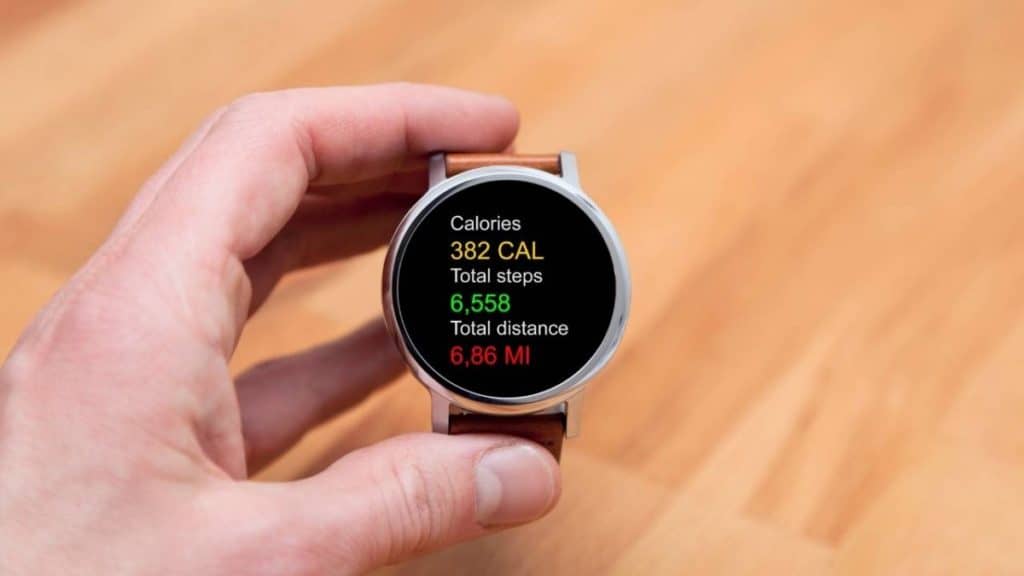
How long does it take the average person to run 5 miles? Is it a distance that you should run every day? And is it going to burn enough calories to make weight loss a possibility?
The average beginner can complete a 5-mile run in about 47-81 minutes. An intermediate runner can complete 5 miles in 38 minutes and an elite runner 30 minutes.
Table of Contents
Average Time to Run 5 Miles By Age
Average time for a male to run 5 miles is between 47 minutes and 69 minutes depending on their ages, fitness levels and running speed. A male aged between 20-24 will run 5 mile is around 47:50. A male aged between 30-34 will run the same distance in 50:45.
| Average Time to Run 5 Mile For Males | ||||||
| Age | Beginners | Intermediate | Advanced | |||
| 15-20 | 47:50 | 39:05 | 30:05 | |||
| 20-25 | 47:30 | 38:55 | 29:50 | |||
| 25-30 | 50:15 | 39:05 | 30:10 | |||
| 30-35 | 50:45 | 39:25 | 30:25 | |||
| 35-40 | 51:55 | 39:50 | 31:50 | |||
| 40-45 | 52:20 | 41:05 | 32:45 | |||
| 45-50 | 53:35 | 42:25 | 34:00 | |||
| 50-55 | 55:40 | 44:15 | 35:10 | |||
| 55-60 | 01:00:40 | 48:50 | 37:45 | |||
| 60-65 | 01:05:25 | 49:55 | 39:15 | |||

Average Time to Run 5 Miles Female
Average time for a female to run 5 miles is between 58 minutes and 81 minutes depending on their ages, fitness levels and running speed. A female aged between 20-24 will run 5 mile is around 58:20. A female aged between 30-34 will run the same distance in 61:45.
| Average Time to Run 5 Mile For Females | ||||||
| Age | Beginners | Intermediate | Advanced | |||
| 15-20 | 57:25 | 45:15 | 35:40 | |||
| 20-25 | 58:20 | 44:50 | 35:15 | |||
| 25-30 | 58:30 | 45:15 | 35:45 | |||
| 30-35 | 01:00:45 | 45:45 | 36:10 | |||
| 35-40 | 01:01:05 | 48:10 | 36:55 | |||
| 40-45 | 01:02:00 | 49:45 | 39:15 | |||
| 45-50 | 01:03:25 | 50:15 | 40:10 | |||
| 50-55 | 01:06:40 | 51:40 | 42:40 | |||
| 55-60 | 01:13:05 | 55:00 | 44:55 | |||
| 60-65 | 01:13:55 | 58:10 | 45:25 | |||

However, It depends on your fitness level and how fast you run. It is not a distance that you should run every day, but it is a reasonable distance to run 3 times a week. It will burn enough calories to make weight loss possible.
According to Runner’s World, the average time it takes to run 5 miles for a man is 49 minutes, and for a woman, it is 54 minutes. But this isn’t the end all be all. Your time will vary based on your experience, fitness level, age, gender and how much you run and recover.
If you are new to running, I would not recommend running 5 miles as your first goal. Instead, start with a shorter distance of 2 miles and work your way up. Once you are able to run 5 miles without too much difficulty, then you can start to focus on speed. Some runners like to calculate their 1-mile times to estimate longer distances.

Other Running Distances That Could Help You
Check out my big running data analytics that contains every running distance by age and gender in a full comparison table for beginners and intermediates. You can compare your average running times against every distance in your age and ability group.

Can I Run 5 Miles Every Day?
Generally, it’s not recommended for newer runners to run 5 miles every day because it increases your likelihood of injury and fatigue. Run 5 miles 3 times a week for 4 to 6 weeks before increasing your running volume. For advanced runners, it’s okay to run 5 miles every day as part of a training program.
When we first start out running, the desire is to improve our mileage every day or every week. But this is the wrong approach, leading to people giving up too early because it gets tough. If you haven’t been running regularly for years, then running 5 miles every day is far too ambitious.
A more realistic and manageable strategy would be to start by running 2 miles 3 times a week and add a 5-mile run twice a week. Once you find you can hold your 1-mile pace for the entire 5 miles without feeling completely drained, then you can add more 5 mile runs during the week.
Most advance and professional long-distance runners rarely run more than 40 miles per week unless they are preparing for a competition. Running long distances too often wears down your body, joints and muscles and most importantly, your mind.
Running 5 miles per day is an admirable goal, and it can be a great way to stay in shape. However, that length is not suitable for everyone. Your run length should be based on your unique experience, health, and endurance.

Benefits of Running 5 Miles Every Day
There are a lot of fantastic reasons for running 5 miles per day. One is that it’s simply an effective way to stay healthy, maintain a healthy weight and improve cardiovascular fitness.
Health Benefits of Running 5 Mile:
A recent study found that individuals who run for at least 10-20 minutes per day reduce their risk of heart disease by half. Your cardiovascular health should be a priority, and running, without a doubt, improves your heart health more than other forms of cardiovascular exercise.
It strengthens your heart and lungs and helps keep your blood pressure and cholesterol levels in check. If there were a magic health supplement we could take to remain healthy, young and vibrant, running would be it.
Mental Benefits of a 5 Mile Run:
Another great benefit of running 5 miles per day is that it gives you approximately an hour alone to think, enjoy nature, or simply clear your mind. Many runners enjoy running because it’s a stress reliever. You may find that a five-mile run first thing in the morning is a great way to start your day.
We are all busy with work, family, and other obligations. It can be difficult to find time for yourself. But if you make the time to run, you’ll be glad you did because it will give you well-needed headspace. Looking after our mental health is more important than our health. Without a strong mindset, it’s difficult to achieve anything in life.
Running Improves Sleep:
If you struggle with insomnia or other sleep disorders, running 5 miles each day can help. According to a recent sleep study, running for just 30 minutes each day can improve sleep quality by 65 percent and the duration of unbroken sleep improved by 40%.
The results of the study showed that running improved participants’ ability to fall asleep quickly and also helped them stay asleep for longer periods of time. We need between 7-9 hours of quality sleep each night to function at our best. If you’re not stimulating your central nervous system with regular exercise, you will find it hard to obtain deep and restful sleep.

Cons of Running 5 Miles Every Day
A five-mile run each day is a healthy and positive experience for most people, but it may not be suitable for you right now. If any of the following describe you, it may be wise to start slow and work up to a five-mile run:
Too Much Running Decreased Motivation: If you haven’t run much in the past, you will likely find 5 miles to be too challenging to complete every day. When you don’t finish your runs, you are less likely to put on your running shoes the next day. When a distance is too challenging, you will eventually give up and stop running altogether.
Running Increase Risk of Injury: If you have a history of joint or tendon issues. A five-mile run may be difficult if you’ve had health problems in the past. You may need to work on your joint or tendon issues before attempting five miles. Otherwise, you might risk injuring yourself.
It doesn’t take long for your body to adapt to regular running, but running too much at the beginning is going to increase your odds of injury. I only increase my mileage every 10 weeks, and I add 2-4 miles maximum to my weekly mileage.
Overweight Runners: You might be considered significantly overweight or obese. Running is a great way to lose weight. However, if you are significantly overweight, a five-mile run may stress too much stress on your body and joints. It could benefit you to start with a shorter distance run.
Walking is a better way to build up your strength and endurance without putting too much stress on your body and joints. Consider walking for 45 minutes every day instead of running 5 miles. Once you lose weight, you can use the walk-run Method to increase your heart rate and burn more calories.
The good news is you have other options if you can’t do 5 miles right now. One is to simply start slow. You may want to start with a short walk or even a hybrid approach where you walk one block and run the next.
You could also start by running shorter distances. Start with a mile, and then when you’re comfortable at that distance, bump it up to two miles. Before long, you will be able to run five miles consistently.

How Many Calories Does Running 5 Mile Burn?
On average, you will burn between 600 to 1200 calories running 5 miles. A male that weighs between 180-200 will burn approximately 700 calories running 5 miles. For a female that weighs between 180-200, they will burn around 900 calories.
Running is also an effective way to burn calories, which is very important if you’re trying to lose weight. The exact amount of calories you burn depends on your weight, speed, and distance you run. For the full break down of how many calories does running 5 mile burn, read this post.
Assuming you average a 10-minute mile, you can expect to burn the following amount of calories on your daily run based on weight and distance:
| Weight (lbs) | 1-Mile Run | 3-Mile Run | 5-Mile Run |
| 100 | 78 | 233 | 389 |
| 150 | 117 | 350 | 583 |
| 200 | 156 | 467 | 778 |
| 250 | 194 | 583 | 972 |
| 300 | 233 | 700 | 1167 |
Tips to Improve Your 5 Mile Running Endurance
If you’re struggling to run five miles, you can take steps to improve your endurance. If you implement these tips, you may be able to not only complete five miles but possibly even longer.
I’ve discussed starting slow and perhaps beginning with shorter runs, like one mile. However, to push yourself, you will need to gradually increase your distance. You can do that by adding on a bit more distance each time. Add an extra five minutes or maybe an extra half mile every few runs. By adding more distance each time, you condition yourself for longer distances.
It’s also important to have the right gear. Good running shoes can be a lifesaver as they can absorb some of the pressure on your feet and joints. That can keep you healthy to, run consistently, and increase your endurance.
A smartwatch can also be helpful because it can track your distance and time. That way, you can log your running information and track your progress. My favourite smartwatch for running is, and you can find a link to Amazon.
Stretching before and after your run is also important. Stretching keeps your muscles loose and reduces the risk of strains, pulls, and other injuries. If you have any muscles that are particularly sore or tight, you may want to give them extra attention.
Your diet also plays a big role in your running ability and endurance. Carbohydrates are one of the main macronutrients that your body uses to create energy. Complex carbohydrates like whole grains and some fruits and vegetables can give your body the energy it needs. Take a look at your diet and consider making changes to build your stamina.
Here’s a list of all the supplements I take for running and recovery:
- Protein Powder (Post run recovery drink)
- Beta Alanine (Increase endurance)
- Electrolytes (Hydration replacement)
- L-Glutamine (Muscle recovery)
Finally, consistency is key. The best way to build endurance and reach the five-mile mark is to run consistently. The more your body runs, the more conditioned it will be to achieve greater distances. Set a daily goal and stick to it. If you do so, you will find that your capabilities increase quickly.
What’s the best investment you could make in your running performance? To discover the exact running gear and why it has significantly improved my running, read this post.
Average Time to Run 5 Mile Summary
Running five miles a day is a lofty goal. If you can do it, you will likely see benefits to your health. Depending on your age and gender, you can expect to run five miles in between 47 and 81 minutes. However, with conditioning, stretching, and consistency, you may be able to increase your speed and your endurance to run greater distances.
